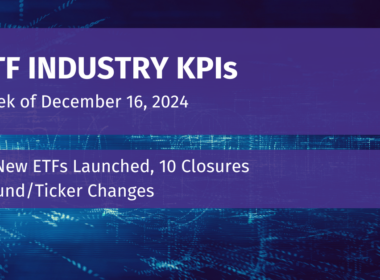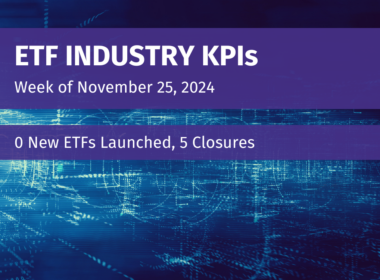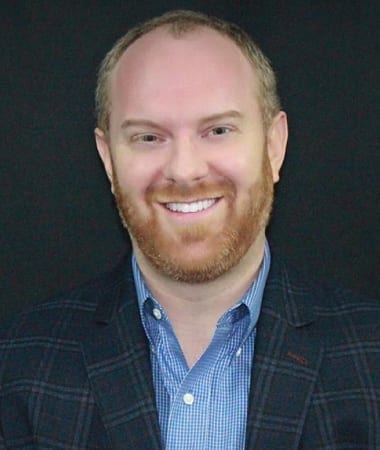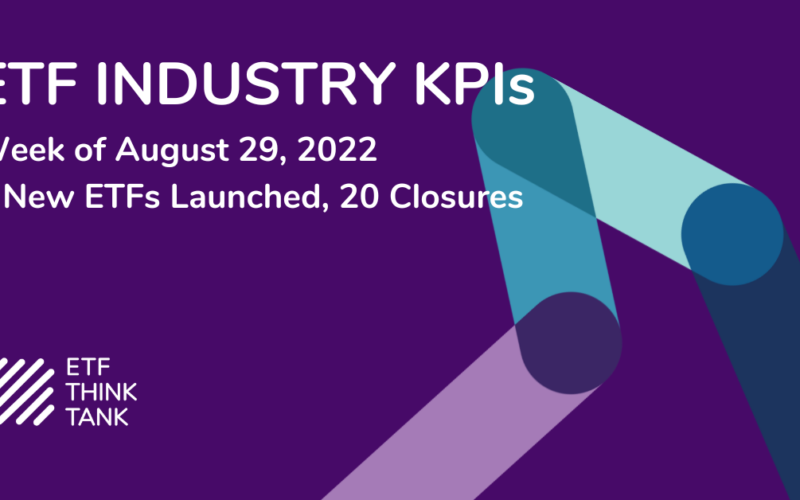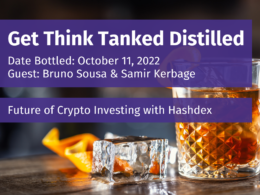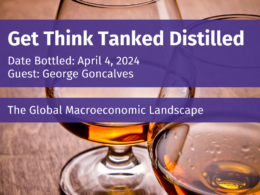The housing market looks like it may be entering a period of rapid consolidation. Following a post-COVID boom, mortgage rates are on the rise, listing prices are getting reduced, and inventories are on the rise. Phil Bak is the CEO of Armada ETF Advisors, the issuer that oversees the Home Appreciation U.S. REIT ETF. He joins the ETF Think Tank to offer his thoughts on the state of the real estate market, where he sees opportunities today, and the challenges of launching an ETF.
Goldman recently came out with a forecast that predicted a housing crisis that wouldn’t end until 2024. Bak agrees with the assessment. He believes that high rates should persist and remain higher than they’ve been in years. There’s certainly a supply/demand imbalance already and the market could be in real trouble when adjustables kick in. Bak notes that it is important, however, for Investors to differentiate between REITs and real estate/homes. Vanguard’s real estate ETF, for example, is not all that correlated to home prices. With residential REITs, you’re talking about rental income. Those are much slower to move than home prices. As long as rental rates are at 94-95%, it’s going to be difficult for rent prices to come down. Bak expects home prices to come down with greater velocity, but there’s more of a cushion on rental incomes than most may think. It is more stable and less volatile.
There is not a lot of data out there for how real estate can be expected to react in a high inflation environment. Bak says that if we get to hyperinflation, you probably want to be in home ownership. Rental incomes tend to be more stable and are more correlated to wages and incomes. There is going to be a big dispersion of inflation rates by region. As a result, we are going to see more of a dispersion of returns and incomes by region. That means investors will likely need to spend more time thinking about their REIT allocations. There are going to be opportunities to generate alpha by being more selective. Office buildings, for example, do not look attractive right now.
The conversation switches to entrepreneurship in ETFs, which Bak thinks is the Silicon Valley of financial services. You can come to market with a great idea and make it unique, but you need to tell your story and succeed. Cathie Wood is a good example of this with the disruptive innovation story. The success rate of new ETFs is not high, but the scalability can make the upside high. Being more targeted, especially in real estate, can offer a greater chance of success.
Bak notes that you launch with a 35% chance of failing. There are parts of the entrepreneurial experience that are hard. The ones that say it’s great are the ones that have survived. There is a difference between the founders and the managers that came later. Founders think there is a way around every obstacle. Managers think about efficiencies and such, but the point of view is different. The house cat and street cat are different. The experience makes us the street cat and you can’t shortcut it.
Other key takeaways:
- Most funds launch after a trend has become popular and end up systematically underperforming. You need a product that you believe in, and you think adds value. If you don’t have conviction, your investors won’t.
- ETFs have a great deal of transparency, but hedge funds won’t tell you who is coming and going. Bak said it would be nice if fund managers were rewarded for that. In some cases, they are looked down on.
- The panel talked about why more family offices aren’t considering launching ETFs of their own? The feeling is that transparency is what keeps them out. Their biggest concern is taxes. Couldn’t they benefit from a tax standpoint? Absolutely. It would be a great way of achieving structural alpha for clients.
- Closure risk is more of a problem for the smaller entrepreneur despite their grit or passion. A lot of times the idea comes too late. If the style stays out of favor long enough, even the best ideas can fail. The best thing you can do to succeed is survive. The timing also needs to be right. If you’re too early, a good idea can fail.
Disclosure
All investments involve risk, including possible loss of principal.
The material provided here is for informational purposes only and should not be considered an individualized recommendation or personalized investment advice. The investment strategies mentioned here may not be suitable for everyone. Each investor needs to review an investment strategy for his or her own particular situation before making any investment decision.
All expressions of opinion are subject to change without notice in reaction to shifting market conditions. Data contained herein from third party providers is obtained from what are considered reliable sources. However, its accuracy, completeness or reliability cannot be guaranteed.
Examples provided are for illustrative purposes only and not intended to be reflective of results you can expect to achieve.
The value of investments and the income from them can go down as well as up and investors may not get back the amounts originally invested, and can be affected by changes in interest rates, in exchange rates, general market conditions, political, social and economic developments and other variable factors. Investment involves risks including but not limited to, possible delays in payments and loss of income or capital. Neither Toroso nor any of its affiliates guarantees any rate of return or the return of capital invested. This commentary material is available for informational purposes only and nothing herein constitutes an offer to sell or a solicitation of an offer to buy any security and nothing herein should be construed as such. All investment strategies and investments involve risk of loss, including the possible loss of all amounts invested, and nothing herein should be construed as a guarantee of any specific outcome or profit. While we have gathered the information presented herein from sources that we believe to be reliable, we cannot guarantee the accuracy or completeness of the information presented and the information presented should not be relied upon as such. Any opinions expressed herein are our opinions and are current only as of the date of distribution, and are subject to change without notice. We disclaim any obligation to provide revised opinions in the event of changed circumstances.
The information in this material is confidential and proprietary and may not be used other than by the intended user. Neither Toroso or its affiliates or any of their officers or employees of Toroso accepts any liability whatsoever for any loss arising from any use of this material or its contents. This material may not be reproduced, distributed or published without prior written permission from Toroso. Distribution of this material may be restricted in certain jurisdictions. Any persons coming into possession of this material should seek advice for details of and observe such restrictions (if any).


